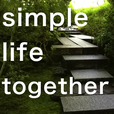
Summary: Making Decisions Like a Fighter Pilot & Frugal vs. Cheap<br> <br> Be sure to subscribe in iTunes and leave a review in the iTunes store! It helps others find the show! Thanks!<br> <br> Dan's Topic: The OODA Loop<br> Our Decisions, Our Future<br> <br> You'll recall that the 5 pillars we focus on for OUR simple life together are Faith, Family, Finances, Fitness and Future<br> Well, our Future is determined every single day by decisions that we make<br> We make decisions all the time...daily in fact…most of them without any effort whatsoever<br> But isn't it funny how simple these "automatic" decisions are when other decisions lead us to hours, days, and sometimes months or years of contemplation and struggle and hemming and hawing?<br> <br> Introducing the OODA Loop<br> <br> <br> Today I want to talk about decision-making and a very simple framework that you can use to help with your decision-making<br> This process is called the OODA Loop, as in O-O-D-A<br> OODA stands for Observe-Orient-Decide and Act. The OODA Loop is a recurring decision-making process…a cycle, if necessary...developed by Col John Boyd, who was a fighter pilot and later a Pentagon consultant after he retired. Col Boyd is also credited with being the key planner for Operation DESERT STORM<br> While Boyd's OODA loop concept began in fighter pilot circles, its also pretty popular in other combat ops units, too. It's become so popular, in fact, that it has since spread to the civilian word...becoming popular in business, sports, and becoming quite popular with attorneys in the litigation process<br> So, if you've never heard of the OODA loop before and are wondering how this little tool can help simplify your life…well, I'm here to share that with you.<br> <br> What's the Scoop on the OODA Loop?<br> <br> <br> The premise of the OODA Loop is that through a recurring cycle of OBSERVE-ORIENT-DECIDE-ACT you can "get inside" an opponent's decision making cycle and gain the advantage.<br> But it's not solely for use against what would traditionally be called "opponents". In business, competitors would be a more appropriate term than "opponent' or "enemy" and even more generically, in life, "situations" can be our opponent when we're trying to achieve our goals.<br> And, well, we all know that clutter and complexity are our enemy, so I cover how the OODA loop can help you out there, too!<br> So, with the OODA Loop, if you can get through the observe-orient-decide-act cycle quicker than your opponent or faster than the situation unfolds, you'll come out on top!<br> So, let's break it down...<br> <br> OODA Loop Phases<br> <br> <br> First, let's talk about the phases of the OODA Loop<br> The first step is OBSERVE. Essentially, this is when you notice a situation that is a potential problem. It's simple, you see something, you observe it. No judgements are made in this phase.<br> The next step is ORIENT. This phase is the biggie…this is where your entire past comes into play. We have to put what we're seeing into a context so we can later make a decision. In the ORIENT phase, we use our hard-wired instincts, intuition, our history, our knowledge, our experience, new information, split-second analysis...even our mental predictions of what the outcome or impact of potential decisions could be…all to orient ourselves as to what we're observing<br> Once we've OBSERVED and ORIENTED, we can then DECIDE. We make decisions every day, and when we do, our decisions aren't just based on the current situation, as I just mentioned in the ORIENT phase, they're based on everything we've soaked in over our lifetime. But our decisions are often limited to a reasonable, limited set of choices. We'll get to that in a moment.<br> So…now it comes time to ACT. Acting is just following through with your decision. Simple as that.<br>
